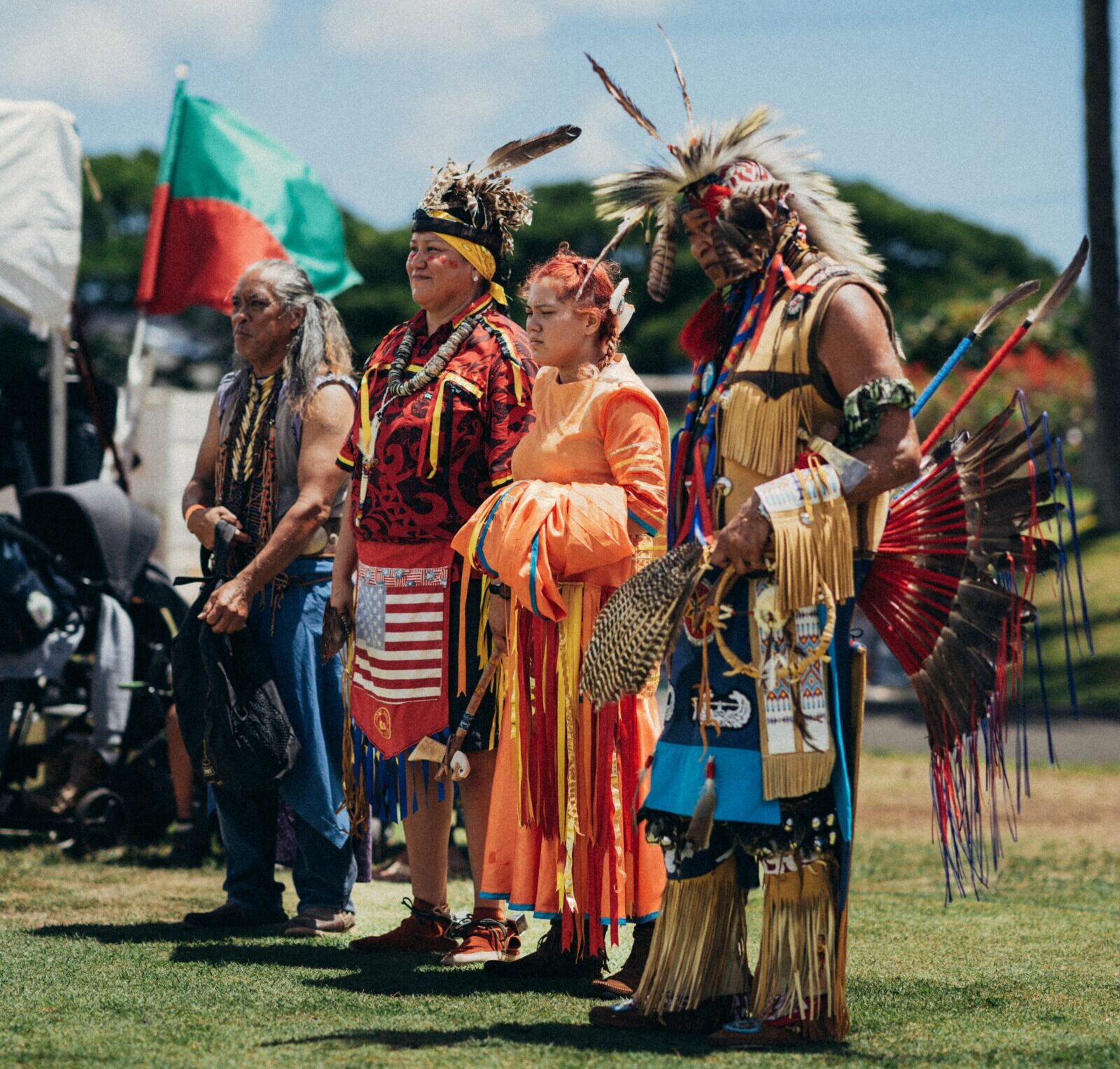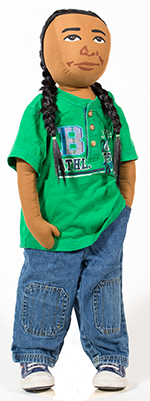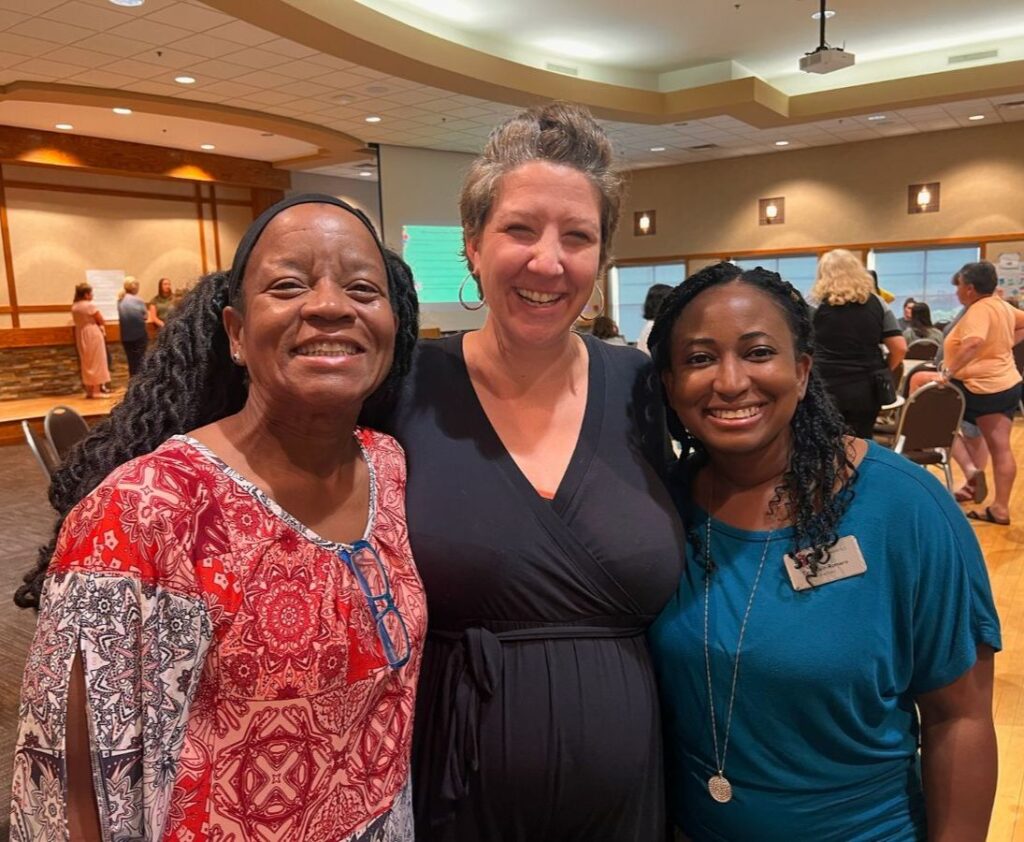
October 9 is Indigenous People’s Day, a day dedicated to honoring and uplifting Indigenous cultures, people, and contributions. Indigenous People’s Day provides an opportunity to engage in truth seeking by shedding light on Indigenous stories that have often been manipulated or omitted. It serves as a reminder to reject white supremacy culture, acknowledging its role in perpetuating injustice. While Indigenous People’s Day is a significant time for collective reflection, it is important to continue our learning, reflection, and actions throughout the year.
In this month’s newsletter, you can find resources to carry with you year round and serve as valuable companions on your journey towards better understanding. As you continue your truth seeking beyond this newsletter, we ask you to look for authentic voices and stories to help inform your responsiveness and action. Listening to their narratives and understanding their perspectives is an essential step in becoming a more informed and responsive advocate for Indigenous rights and justice.
At the beginning of every AmazeWorks training, we take time to reflect on the role that place plays in our history, culture, and orientation to the world by acknowledging the Native land. We encourage our workshop participants to start with learning and reflection alongside land acknowledgment.
Then, we provide examples of ways to take the acknowledgment further into action, particularly for people who are not Indigenous or BIPOC. Calls to action include:
(Adapted from Beyond Land Acknowledgment: A Guide by Native Governance Center)
In honor of Indigenous Peoples’ Day, we invite you to engage in action to support Indigenous people and causes, such as some of the examples on this list. It’s important to remember to choose actions that are authentic to you. For example, paying voluntary land taxes may not be feasible for you, but you may be able to support those efforts in other ways.

AmazeWorks client, Goodhue County, and other Prairie Island and Red Wing community members and partners have spent years working on the Honoring Dakota Mural Project. This project aims to create a space for the celebration and preservation of Dakota culture and history with a mural painted on a prominent Red Wing building. The mural, painted and designed by Native artists, features different sections of local Indigenous relatives divided by a sweetgrass braid and a red willow twist.
After three years of community conversations and events, there will be a community celebration to present the mural this year on Indigenous Peoples’ Day (Oct 9) from 4-8pm.
“This project has come to embody shared experiences, family and tribal lineages, collective healing and much more. It has grown far beyond brush strokes and paint. We are creating a community legacy, of which the effects will continue to ripple for generations to come.”
~ Jeremy Fields, mural artist
“Indigenous People Answer,” an AmazeWorks 7th grade lesson, shares a video of a diverse group of Indigenous People answering some of the most commonly Googled questions about Native Americans, including how they identify, some basic history, and about the diversity among tribes.
Notable discussion questions include:
While this is an 7th grade AmazeWorks lesson, people at any age can benefit from engaging in this lesson’s journal prompts, discussion questions, extension activities, and more.
To learn more about AmazeWorks Middle School curriculum, click here.
Birchbark Books is a tiny independent bookstore, located “a stone’s throw away from Lake of the Isles.” Owned by author and enrolled Turtle Mountain Chippewa member, Louise Erdrich, this bookstore carries signed or personalized copies of all Louise Erdrich books. Along the store’s shelves are notes written by staff members highlighting certain books and why they made an impact on the reader. Birchbark is deeply passionate about serving the neighborhood and Indigenous community, and we hope you will support them online or in person to check out the hand made canoe on their ceiling!
P.S. Educators, you can receive a 10% discount for in-store purchases of $100 or more at Birchbark Books for educational materials. 🤗

When AmazeWorks creates a Persona Doll, we work with teams of people who share key identities with the dolls to build their stories. We do this to ensure that the stories mirror the lived experiences of at least some members of the doll’s community.
This is Simon. Simon lives with his mom, his grandparents, his uncle, and two of his aunts. At Simon’s house, they don’t call him Simon because his Grandpa is named Simon, so it would be kind of
confusing. Instead, they call him Little Man. Simon and his family are from the Lower Sioux band of Dakota. His grandparents live on the Lower Sioux Reservation, and Simon gets to go to his child care there every day.
Children see Persona Dolls as real, or almost real, so they can learn from the dolls as though they were another child, a child who is eager to tell their own story, listens well to the stories of others, and has an endless capacity to accept helpful advice. To bring Persona Dolls into your learning space, email info@amazeworks.org or place an order on our online store.
AmazeWorks partners with consultants from our community of anti-bias educators to help us lead larger trainings, like our district-wide workshops with ISD 196 in August. Thank you Candace, Tonya, Andrew, Jess, Desi, and Kathryn for helping AmazeWorks bring belonging to life for educators and students across ISD 196! It is always a gift to bring in the experience and insights of people in our community of support. Thank you for making us better and helping us show up for this district.

ISD 196 educators, we are so grateful that this district partnership has helped us develop deep relationships with you throughout your anti-bias journeys. Your commitment to this work makes belonging for all that much more possible. Thank you for your work to create the conditions for belonging so that every student and educator can show up more fully as their authentic self. 💞